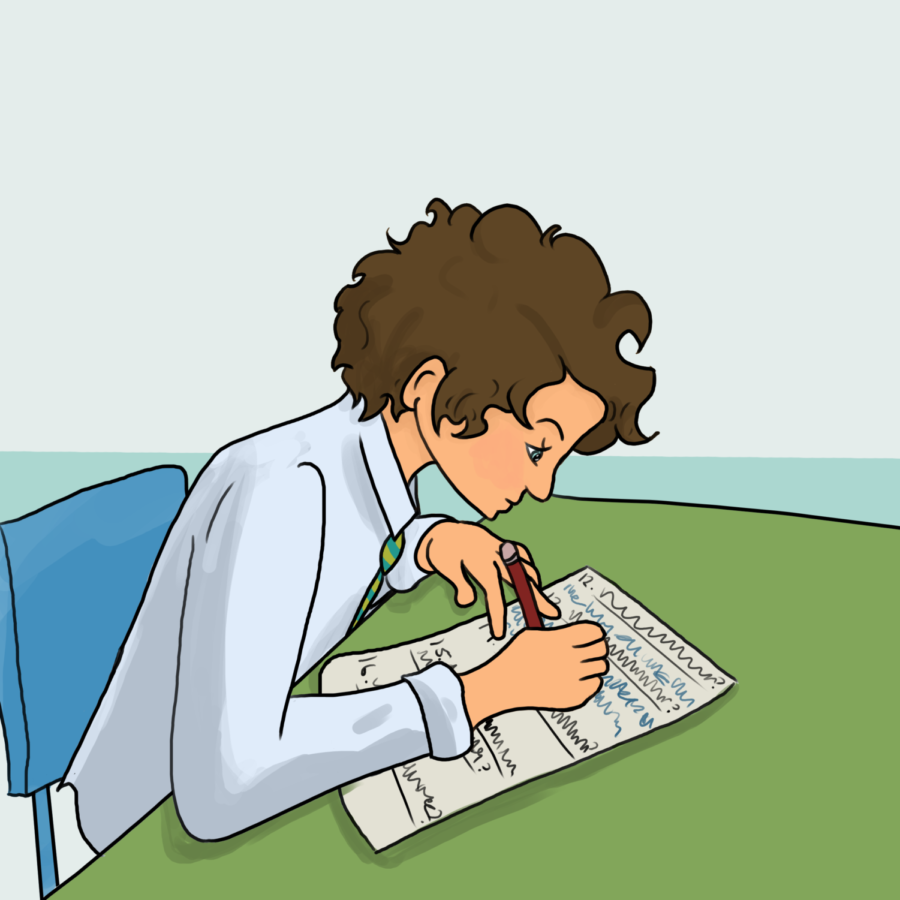WE ARE Cancelling the HSC
June 7, 2022
While I recognise that formal exams have an important place in education – being able to independently recall and regurgitate information is crucial to the development of more sophisticated knowledge, while the ability to solve problems and think critically under pressure is of immense value.
BUT … instead of students ACTUALLY learning, stressful exam blocks and emphasis on short term recall means that the information doesn’t amount to anything other than hours of study. Teaching should aim to create understanding, not just cover syllabus dot points to forget about once exams are over.
As verified in a 2019 University of Edinburgh paper, it is through interpersonal collaboration and innovative educational exploration that students can best learn – and the ability to think creatively and critically in our learning is clearly more relevant than the ability to regurgitate previously rehearsed content.
Unfortunately, despite the fact that NESA is trying its best, the HSC still encourages an approach of learning that replaces the art of true understanding with monotonous rote learning – a learning style that became redundant decades ago.
The other day, I delivered a quick presentation to a group of Year 10 students, sharing with them my approach to maintain motivation and preparing for exams in Years 11 and 12. With a burden two years heavier than theirs, I enviously delivered my wealth of advice and experience, transferring to their yet unburdened consciences my word of woe – I, the messenger of their imminent doom – which they eagerly noted down, too naïve to cherish their last 6 months of sanity.
I’m only joking of course. To the Year 10s reading this – I’m exaggerating… You’ve got 12 months of sanity left, not 6. 😊
Anyway, my point is that in an ideal world, they wouldn’t even need to know or care about how to navigate through a dodgy assessment notification. Who are we kidding? This is no way to live. Obsessing over the minute details in a marking rubric, asking “what technique is this?” and “how many ETAs do I need to get an A?” the night before an essay is due. Our ancestors lived in trees. Their biggest worry was choosing which bush to pick berries from. What the hell are we doing?
I digress… perhaps this is more a critique of modernity itself than the HSC. But the principle still applies. The system in place does nothing to ease the stress of adolescence, already a period burdened by immense struggle for so many people.
As it is, the HSC and the build-up of pressure it brings from students’ communities, families and peers brings about an environment conducive to stress and mental instability, as well as developing a culture and environment detrimental to the development of good character and well-rounded people. WE ARE simply creating mass-producing study machines that chew through past papers.
Let’s face it – our generation’s mental health is pretty terrible. Try to recall the last time someone said “the HSC was really beneficial to my mental stability”. No one has ever said that??? How surprising.A 2020 study found that rank-based academic competition among peers, was a leading reason as to why we so often associate exams with poor mental wellbeing.
Currently, the system perpetuates a narrow and outdated perception of what constitutes success – Band 6s, a high ATAR, etc… Fields like medicine and engineering are, despite being important, excessively prioritised over critical areas like emergency service work, teaching, farming, or even garbage collection. Where would we be without garbos? Neither a GP nor a neurosurgeon can operate a garbage truck.
The tried and tested skills and techniques reinforced by teachers and tutoring services are effective at what they intend to do – efficiently inhale information, and then spit it out perfectly to get the best marks possible. But what does that accomplish, really? Students put so much time and effort into maximising their exam results, and then spend the next 80 years of our lives barely thinking about them again, trying to forget the trauma.
You could give a student every resource and strategy they could ever need and teach them to systematically “hack” the HSC, but what kind of long-term benefit does that have for a student? Focus on pure academic ability is a narrow pursuit that doesn’t develop any other aspects of a human and is an inaccurate gauge of potential workforce skills.
The implementation of Project Based Learning at the College, as well as the introduction of a new and engaging array of elective options for Year 9 and 10 students is a proactive and future-oriented step forward that should be appreciated and commended. The focus on soft skills and enterprise skills being taught in our school such as communication, coachability and positive character traits like integrity and personability are much more in line with what is now being prioritised by universities around the world and prepares students to seamlessly enter the workforce.
WE ARE living in a dynamic world in an era of pervasive technological innovation and social progress. Why are the things we learn still being regulated by a single body that can’t address the needs of the whole community of 5-18 year old students? I understand the value of regulated education – but there must be more freedom to teach and learn what is necessary in our ever-adapting world.
What kind of message does it send our youth when we tell them their whole school (and childhood for that matter) journey must culminate in a set of stressful, regulated examinations, testing our ability to run on 5 hours of sleep. And worse – that this matters more than our capacity to contribute to the development of our society.
Many students (and parents) view the HSC as the “be all and the end all” of how successful they are in the future. Minimising a student’s cumulative 6 years of high school to a number you receive in December is simply one of the worst ideas anyone’s ever had. Students should be motivated by their passions and aspirations, not the number they receive at the end of the year. Whether intentionally or not, many students are inevitably led to focus a whole 4 years of anticipation and effort, followed by 2 final years of angst and dread, for a 3-week period in October.
The opportunity to drop out of high school is limited in scope and applicability – if you don’t want to be a tradie then there’s no chance you’ll find value doing so in our current system (and even less chance your parents will approve of such a decision). There is not enough variance in options for us to take. We’re all vastly different individuals. There’s no one size fits all cookie cutter solution to post-school life.
Dear NESA, please do better. If the HSC is still a thing in 10 years, this article has all but failed.














